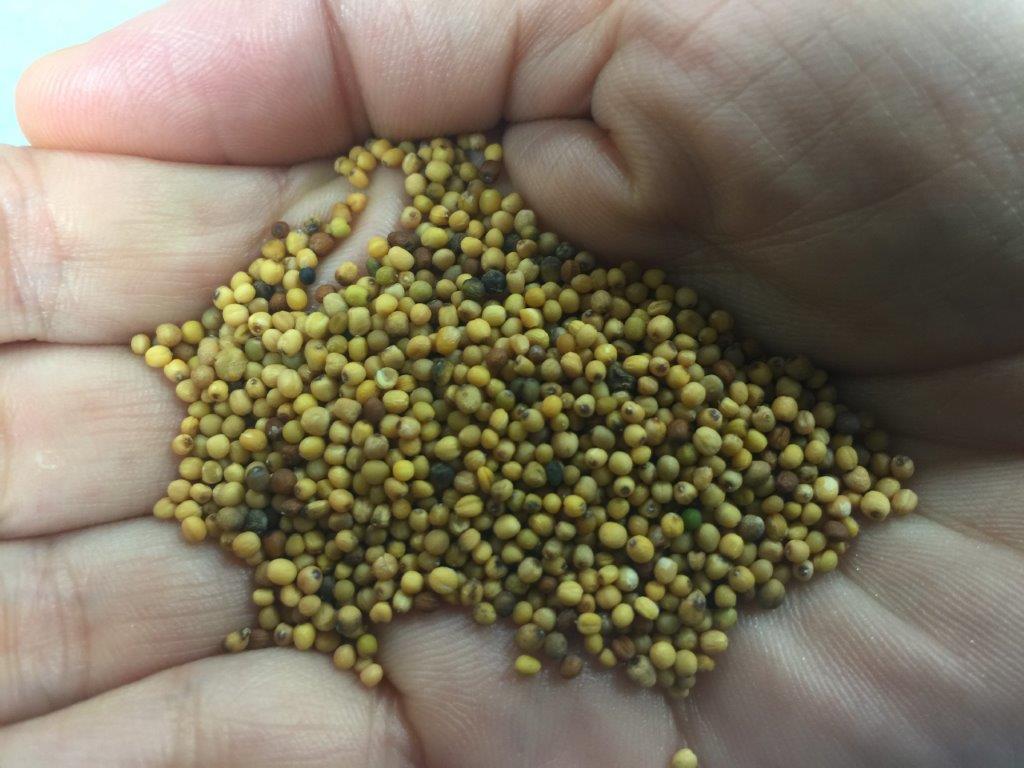Qantas hopes to use mustard seed to power planes
17 November, 2017
4 min read
By joining our newsletter, you agree to our Privacy Policy


Qantas is hoping to “cut the mustard” with a biofuels deal aimed at developing an Australian industry and involving a world-first flight between the US and Melbourne.
The Australian carrier will combine one of its new Boeing 787-9 Dreamliners with a biofuel made from an oil-rich industrial mustard seed, Brassica Carinata (carinata), to operate the Los Angeles to Melbourne flight early next year.
The flight stems from an agreement between the flying kangaroo and Canadian-based agricultural technology company Agrisoma Biosciences aimed at working with Australian farmers to grow the country’s first commercial aviation biofuel seed crop by 2020.
Carinata can be sown in fallow areas when food crops fail or in between regular crop cycles to improve soil quality, reduce erosion and provide farmers with additional annual income.
The crushed seed also provides a high-protein meal for livestock.
University of Queensland field trials in Queensland and South Australia have demonstrated the plant should grow well in the Australia’s often arid climate.
Agrisoma says its commercial operations in the USA, South American and Europe are certified as producing fuels with a more than 80 per cent reduction in life-cycle carbon emissions compared to standard jet fuel.
Qantas International chief executive Alison Webster said the 787 flight and the partnership marked the first step in developing an aviation biofuel supply in Australia.
“We are constantly looking for ways to reduce carbon emissions across our operations but when it comes to using renewable jet fuel, until now, there has not been a locally- grown option at the scale we need to power our fleet,’’ she said.
“Our work with Agrisoma will enable Australian farmers to start growing today for the country’s biofuel needs of the future. The trans-Pacific biofuel flight is a demonstration of what can be achieved locally.
“The longer-term strategic goal of the partnership is to grow 400,000 hectares of carinata which would yield over 200 million litres of bio-jet fuel each year.
“This will support the development of a renewable jetfuel supply and bio-refinery in Australia to power our fleet and further reduce carbon emissions across our operations.”
The deal is one of number announced this year by airlines in the region.
Qantas announced in October that aircraft departing Los Angeles will use biofuel produced from sustainable plant oils from 2020 .
Under that deal, the Australian airline will use a 50 per cent biofuel blend on flights between LA and Australia as part of an agreement with US bioenergy company SG Preston to buy eight million gallons (30m litres) of renewable jet fuel annually over 10 years. The airline estimates the deal will save 190,000 tonnes of CO2 over 10 years.
It has the option to negotiate further supply with SG Preston at LAX and other US ports, subject to availability. The airline also flies to New York and is expected to announce other US destinations as it modernises its fleet with new, more fuel-efficient aircraft.
Virgin Australia also announced it would work with US renewable fuel supplier Gevo to introduce sustainable aviation fuels at Brisbane Airport.
The deal will mark the first time biofuels will be blended with regular jet fuel at an airport in Australia and only the third time in the world after Los Angeles and Oslo.
The project, which will run for two years in conjunction with the airport and the Queensland Government, will mark the first time biojet produced by Gevo’s alcohol-to-jet process will be blended with an airport’s regular fuel supply.
The fuel will initially be made in the US from sustainable non-food plant oils and the 50 per cent blend is expected to produce half the amount of carbon dioxide over its lifecycle when compared to standard jet fuel.
Air New Zealand has also been active in the biofuels space and in 2016 joined with Virgin to call for offers from companies to help develop an Australasian biofuels industry.
While these all speak to continued airline industry interest in the technology, players have acknowledged that making sustainable fuel a commercial reality in Australia will not be easy and these are just early steps.
Virgin Australia chief executive John Borghetti earlier this year called for a long-term, coordinated effort from airlines, airports, governments, fuel suppliers and others.
Biofuels are essential to an aviation industry commitment to carbon-neutral growth and a reduction in net aviation CO2 emissions, relative to 2005 levels, of 50 per cent by 2050.
Qantas first trialled biofuels on domestic Airbus A330 and A320 flights in 2012. In that case, the fuel was derived from cooking oil and used in a 50/50 blend.
Next Article
2 min read
Qantas triples profit but misses mark

Get the latest news and updates straight to your inbox
No spam, no hassle, no fuss, just airline news direct to you.
By joining our newsletter, you agree to our Privacy Policy
Find us on social media
Comments
No comments yet, be the first to write one.
